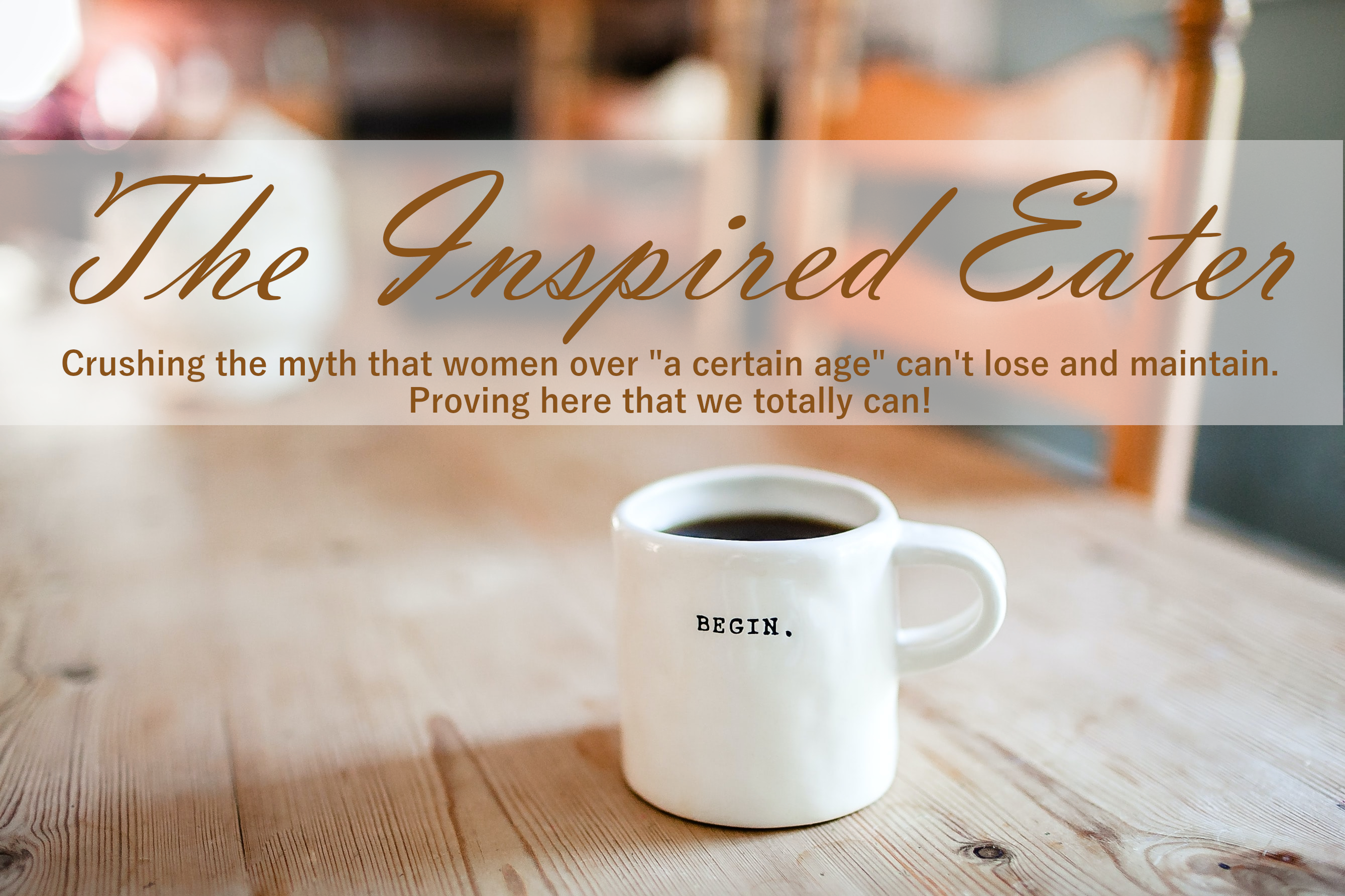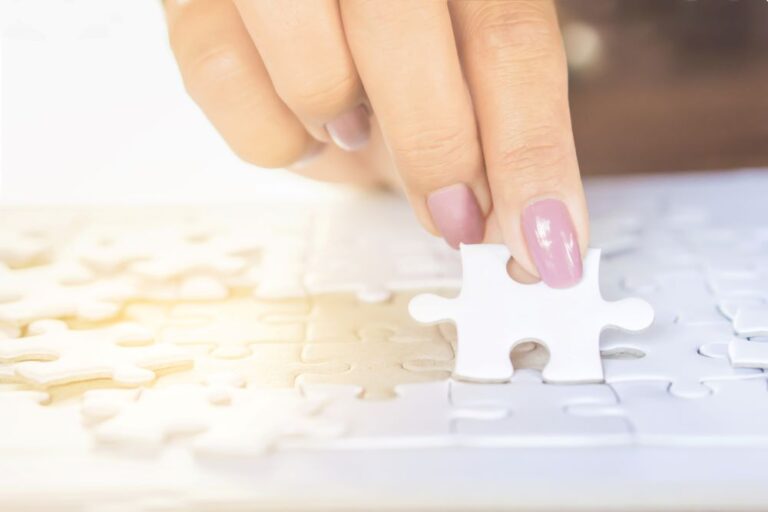Pearl One
It’s Monday evening and you’re home alone. You’ve been losing weight at a great clip – always taking time off to “hold” and give your body time to adjust – but you know that your partner has cookies and cream in the back of the freezer.
And you want some.
I mean, it’s one bowl. No big deal, right?
And here’s what got me through difficult moments like this.
As I moved through my days, I saw making smart eating choices like I was working on a huge puzzle.
This is key I hope it makes sens. Let me know if it does or doesn’t Wendy@theInspiredEater.com.
The largest pieces of our puzzle are these VIPs:
- Finding an eating plan you like so much you married it.
- Planning (with as much determination you can muster) your day, your week, your month.
- Developing strong smart eating habits that’ll have your back during tough days.
- Journaling (affordable therapy for every budget).
- Offensive living (noticing ahead of time where obstacles will present).
- Self-Talk (forever working towards being kind and supportive).
We keep the big puzzle in mind as we engage the medium pieces too.
A medium puzzle piece would be:
- Ordering awesome books to be your evening book dessert.
- You become one with carrying your cold-tote everywhere.
- You’re a fanatic about tracking the food you eat each day.
Small — but totally change-making — are the many small pieces that fit into the larger picture:
- When your granddaughter offers a bite of her donut and you say, “No thank you, honey.”
- When giant muffins (cake) walk into your meeting, sit as far away as possible and have the banana in your purse or eat from your cold-tote instead.
- When you have a really nice salad waiting in the fridge for lunch, but there’s cold pizza in the drawer too. With the big picture front and center you choose to sit down with the salad (if you’re still wanting pizza after the salad reach for cottage cheese, yogurt or an apple with a small amount of peanut butter).
We won’t have a place for the medium and small pieces to go unless we first put in the larger pieces. Can you see how vital each piece is? Each level of puzzle piece — large, medium and small — is vital to making the big picture work.
And what’s the name of the puzzle on the box? WHY? ♥
Pearl Two
I see it again and again; a self-help book will include “love yourself.”
What does “love yourself” even mean? Most of the advice ranges from “be more compassionate with yourself” – okay but how? — or to get yourself a pet. (I’m not making it up, a certain website suggested several silly ideas for developing self-love and one was “get a pet.” You know that I love animals – all animals, I’m not picky – but getting a new fur-kid doesn’t have much to do with developing self-love).
The term “self-love” doesn’t mean much to me, but self-respect, self-dignity and self-deep appreciation sure do.
My theory is that it’s our cavewoman who comes into the picture when we’re talking about self-respect. Quick review.
Our prefrontal brain:
- pays taxes on time and our cavewoman is the one who wants to drain the savings and fly to Hawaii.
- says, “I eat broccoli and brown rice — with a pinch of salt — every evening” while our cavewoman wants pizza, but will settle for a grilled cheese sandwich with extra fries.
- goes to get sleep early. The cavewoman wants to read a good book into the night (“just one more chapter!!”) and prefrontal is a zombie the next day.
Journal-write about your cavewoman so you get to know her better. Ask yourself strong questions like, “What do you think about loving and caring for your inner cavewoman? “How do you distinguish between your prefrontal and cavewoman?” What do you love, love, love about both?” “When is it the easiest to flip from a day of your prefrontal being charge versus your cavewoman who goes wild with food?” “If your prefrontal was sitting right in front of you, what would you ask her?” If your cavewoman was sitting with you, what would you ask her?”
The wisdom will flow through the pen onto your journal. Keyboards work too! ♥
Pearl Three
A sequence a week
Once you get accustomed to doing sequences, you can do them rapidly like I did this week. But again I typed them out for ages. This sequence is from my own life.
The Initial Sequence
Situation (something concrete): my favorite news podcasts kept revisiting a topic in current events. Initially I refused to listen and kept fast-forwarding the show, but they continued returning to it.
Thought: I thought that the topic was just awful and I did not want to hear about it anymore.
Feeling: Rage, disbelief and determination to stop listening.
Action: My heart started to race.
Result: I was snappish with other people (and with myself).
The New Sequence
Situation (something concrete): my favorite news podcasts kept revisiting a topic in current events. Initially I refused to listen and kept fast-forwarding the topic, but they continued returning to it.
Chosen thought: I don’t need this information, but the more exposure – through the media — this problem gets the better. It’s great that the news is giving it so much attention. People are learning and that’s only a great thing.
Feeling: I felt pleased to think people would hear the story and make change.
Action: Kept listening to the show (once they were off the negative topic).
Result: Listening to the podcast and cleaning the kitchen. ♥
Pearl Four
Pearl four is an amazing book recommendation; not a review, just an awesome book I want to share
Well, here we are at Pearl 4 again. Over the week I went through a stack and didn’t find one book that I deemed worthy of being called a book-dessert.
My next plan when I don’t find a book I can recommend is that I’ll keep a list of classics that I’ve read and loved. Let me know if there’s a particular classic you love in the comments below.
As a young adult, I loved the comic strip Calvin and Hobbes. Since I loved the strip, I gave my boys their own beautiful set that I hope one day they’ll share with their kids.
Funny enough, I find reading a Calvin and Hobbes book to be extremely relaxing. It feels so good to go to sleep in a positive, happy mood. The strip veers from so funny to so wise. I’m going to read them again tonight.
Order some of the books from the library or buy the set I gave my sons: The Complete Calvin and Hobbes. ♥
Pearl Five
You were born to win, but to be a winner you must plan to win, prepare to win, and expect to win. Zig Ziglar ♥
My book is a great way to have all of the smart eating hacks in one place. Keep it in your kitchen for morning planning. The Inspired Eater: Fed Up!
And if you’re enjoying what you’re reading, I would love it if you’d share with a friend.
I hope you have a magical weekend!
♥ Wendy
Are you new to the Inspired Eater? Welcome!! This blog won’t make much sense until you first read the Aunt Bea post (and you’ll find Aunt Bea on this page to the right under my short bio). On your cell you’ll see it immediately following the first post. After you enter your email address, the Aunt Bea article will be sent to your email’s inbox. If it’s not there, you might check the spam folder. And always feel free to email me at Wendy@TheInspiredEater.com and I’ll get Aunt Bea right to you!
You know the scoop: I’m an Amazon affiliate. If you buy from a link in my post, I’ll receive money, but the arrangement won’t cost you a dime.
I am not an expert, a doctor, a surgeon, a nurse or a nutritionist: the information within TheInspiredEater.com is based solely on my personal experience and is not intended to be used as a substitute for professional medical advice, diagnosis, or treatment. ♥


3 Comments
The puzzle analogy is super helpful. I really like that.
I have seen the saying “you can’t hate yourself into changing”. Which is so true. However, I don’t really like the “self-love” phrase either. I do like the phrases you mentioned and talked about. Thank you for discussing this, it is very good.
Thank you!! It occurred to me that I this puzzle system in my head, but wasn’t sure who to explain it.
It”s a way to link the daily to the bigger picture.
I think in terms of the puzzle-metaphor all day long. It’s automatic now, but it took time to develop.
Wendy
Thanks Wendy for this post. Good pointers for staying on track. I can relate to your story about eating from loneliness and grateful I found and maintain a healthy eating plan that works for me. Saw this post at July 2024 Edition – The Hearth and Soul Link Party. My shares are #59, 60, 61, and 62. Enjoy.